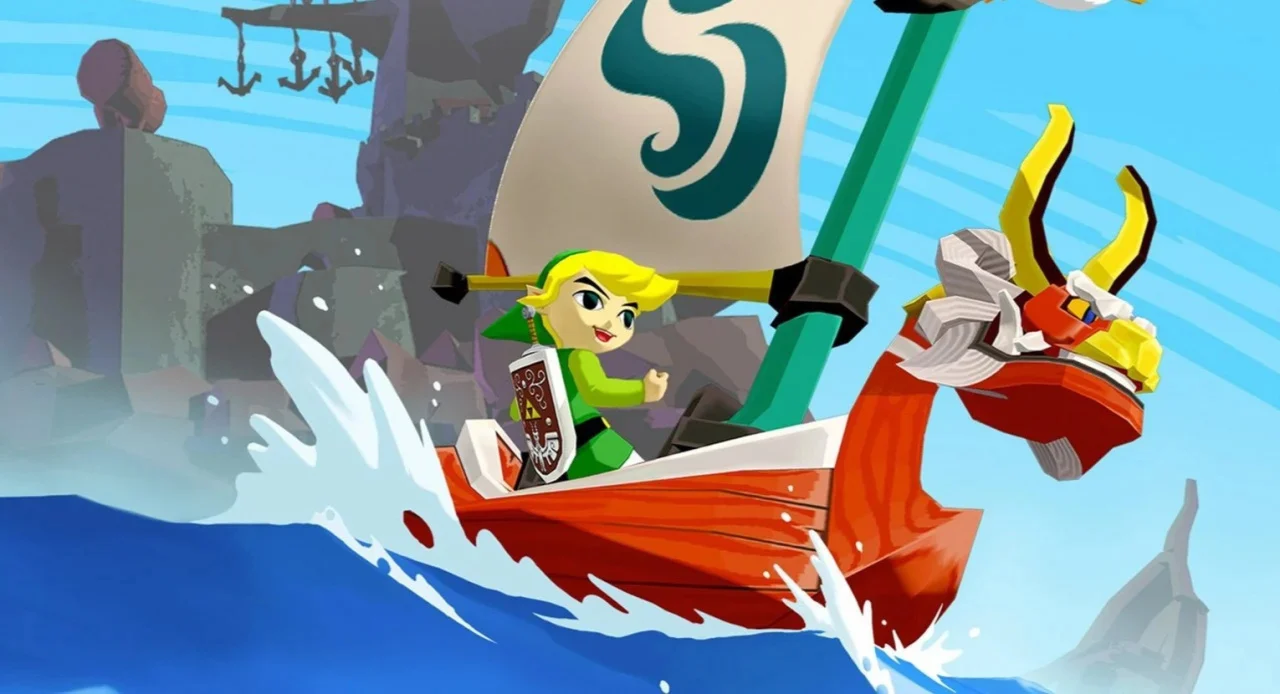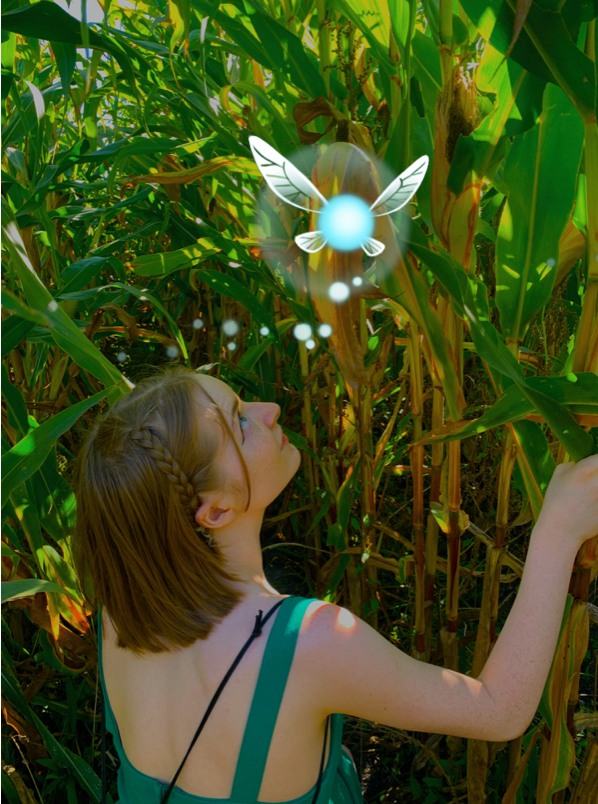The Unchosen One: A Look At The Bravest Link In The Series
Posted on August 25 2023 by Alexandria Weber

The Zelda series is one that bleeds with themes of destiny, birthrights, and submitting to the designs of a higher power. Through the protagonist Link, as well as other characters, we often see a type of heroism that involves a call to action via this idea of destiny. The hero Link is fated to save Princess Zelda by defeating Ganon, a triangular formula that has equated to a consistently successful chain of adventure games. Although the formula has its fair share of variations, the series has a similar format across the board.
Every Link in his own respective journey has a catalyst, where a figure of wisdom tells Link of his destiny and sends him on his way. The Link featured in The Wind Waker, however, is the most paramount exception to the series’ convention of destiny, as one voyage to save his sister turns into him stepping into the shoes of a long-lost hero.
A Delayed Catalyst

The Zelda games prior to The Wind Waker have a quick start as far as gameplay, largely due to a varied combination of technology constraints and developers attempting to establish pacing that starts the player running. Though Ocarina of Time took into larger consideration the exposition of lore, the trajectory of Link’s true purpose still begins fairly soon. The Great Deku Tree tells Link to go into Hyrule and collect the other gems before they succumb to Ganondorf’s clutches. Even before that, we are shown the dream Link has of his future facing Ganondorf, as well as the wise tree telling Navi about the importance of Link. From the get-go, it is made apparent that this little boy from the forest is destined to play a part in something greater than himself.
The emerging youth from Outset Island, however, is in a very different Hyrule. The opening crawl depicts this cel-shaded version of Hyrule as one that burned and flooded because of an absent hero and a consequential divine intervention. Only having the role of the player character indicates that the boy who awakens on the wooden platform is important to the story. He has come of age to wear a warm spring-green garb reminiscent of a hero of old. However, the tried and true catalyst of an old, wise NPC is not present. Even when Link’s sister is taken by the Helmaroc King, there is no old woman that points at any glowing triangles on his hand, nor an old tree to guide Link on his way. It is Link’s decision to risk his life for his sister that prompts him to board the pirate’s ship. His grandmother, although literally an old woman, is a supportive, albeit worried, figure who knows not of the greater threat to Hyrule. In fact, Link and Aryll being gone for so long makes her sick with worry later on in the game.
Thus, no obligation ties him to starting his adventure, only his concern for his sister. The catalyst that draws the trajectory of the rest of adventure, which is the conversation between him and the King of Red Lions on Windfall Island, takes place after Link has gone on a willing venture with scary pirates, has come face to face with a dark figure at the Forsaken Fortress, and is thrown to whims of the sea, failing to rescue his sister. Thus, the delayed catalyst portrays this particular Link as having an agency that is heartwarming and that shows his heroic bravery and courage from the get-go.
Growing Up
Ocarina of Time approached narrative in a way unparalleled to any Zelda game that came before it. The grand tale of heroics, however, whether intentional or not, includes a string of situations that gives Link almost no choice in where his path leads. I’m not talking about linearity, or even criticizing that the game doesn’t have interactivity as far as story; I’m referring to the story itself. At only nine years old, Link is encouraged to take up the Master Sword as the Hero of Time, simultaneously throwing him seven years into the future. Unwillingly, Link becomes a child in an adult’s body. Although some argue that Ocarina of Time is a game about growing up, I think it’s a very unhealthy perspective of the theme. Many people in real life, myself included, were forced to grow up and mature very quickly, having to deal with things that life shouldn’t be throwing at children. Link’s childhood is squandered, as his progression from child to adult is not something he grows through in real time, but something he is thrust into in the blink of an eye.
This may result in, and probably is, a tale that is inspiring to many a Zelda fan, seeing a protagonist that perseveres regardless of having their childhood taken away. However, I much prefer how Link grows up in The Wind Waker. We meet Link on the cusp of growing up, and throughout the journey, we watch him learn bravery and selflessness. He starts the game foolishly prioritizing his sister’s safety over his own, absentmindedly running off the cliff and lucky Tetra was there to catch him. By the end of the game, he’s gone out onto the open ocean, forging relationships with the scattered kingdom around him. He saves his sister by the middle of the game, but he goes on to make a decided choice to prove himself as worthy to face Ganondorf, thus saving his home, his ocean, and his newfound world. He wasn’t meant for anything except island living on Outset, but becomes someone who crafts their own future.
Link thus grows up on his own terms, learning patience by not being so reckless and instead approaching saving his sister indirectly through gaining the strength to face Ganondorf. He learns intelligence and wisdom, both through the puzzles he encounters, as well as his accruing experiences in battle. And lastly, he learns empathy, learning how to step outside of himself, his sister, and the life he knew and into some one else’s shoes, sometimes literally. He does this to such a great degree of selflessness and care about others that he even listens to Ganondorf talk about his past experiences growing up in an unforgiving desert.
Although there is an argument to be made that it is possible to be too selfless in theory, Link in The Wind Waker matures emotionally in just the right way.
Forgoing Destiny

In a series very heavy with tones of religion, it’s easy to forget that The Wind Waker hinges on the absence of deities. Sure, there are floating frogs and a creepy fairy child, but there is one line in the game that always gives me chills when I see it.
“Your Gods destroyed you,” is what Ganondorf proudly bellows at the descendant of a once-prosperous Hyrule, and he’s not wrong. The simplest part of Zelda lore is that the gods, or goddesses depending on the game, choose a hero with an unbreakable spirit to be there to ward away an impending evil. In the case of The Wind Waker, unless Hyrule was always without deities, they allowed the Gerudo people to live in anguish in the desert and allowed Ganondorf’s rise to power in Ocarina of Time. They, whether accidentally or not, chose a hero that would eventually abandon his people, so that when Ganondorf returned, the gods had no choice but to flood all of Hyrule to circumvent his plans, likely drowning many, and certainly dousing Hyrule to be forgotten. The deities of Hyrule tried to wash the kingdom away as a failed creation.
King Daphnes Nohansen Hyrule attributes Hyrule’s fall prior to The Wind Waker to his own shortcomings, but the flooding of Hyrule is a great indication that no matter how it got there, Hyrule was considered beyond saving to the deities of Hyrule.
Link, in this case, is saving a Hyrule that the gods lost faith in. Of course, he doesn’t do it by rewriting time and undoing the flood, but he does it the way the King does it. Regardless of the floods, Hylians still smatter the ocean in bursts of civilization. Like a dying tree that begets new seeds, Link learns what the King teaches him, to let the old Hyrule stay in the past and let a new one grow into what it needs to be. The gods didn’t intend it, but we see Link and Tetra sailing into the horizon at the end of The Wind Waker, ready and eager to rebuild anew. As the King puts it, “I have planted the seeds of the future.”
Like Breath of the Wild, although less upfront with it, Hyrule is dead to begin with in The Wind Waker. The castle is sunken and the surviving descendants of the kingdom are divided and are vastly ignorant of their origins. The King of an age long passed is dead and Ganondorf survives on bitterness and anger. Although Link and Tetra bring hope to the future, they are simultaneously a means to an end, the final nail in the coffin of an old Hyrule.
However, like cockroaches who survive levels of radiation toxic to humans, the citizens of Windfall, Outset, Forest Haven, and Dragon Roost Island are thriving in a way destiny does not anticipate. With a resplendent stubbornness, Hyrule lives on and the King knows that it is this new youthful and sinless Hyrule that is worth protecting from Ganondorf. And, with no hero chosen by the gods, he took destiny into his own hands, finding a youth with courage unparalleled by any other.
What do you think of the way The Wind Waker handled destiny? Does the lack of destiny make this Link the bravest in the series? Or does it discount the bravery of other Links? Let us know in the comments below!

Alexandria Weber is a Senior Editor and an aspiring creative writer. Her favorite food is apple pie and she loves her cat Galadriel. Ask her for pictures!




